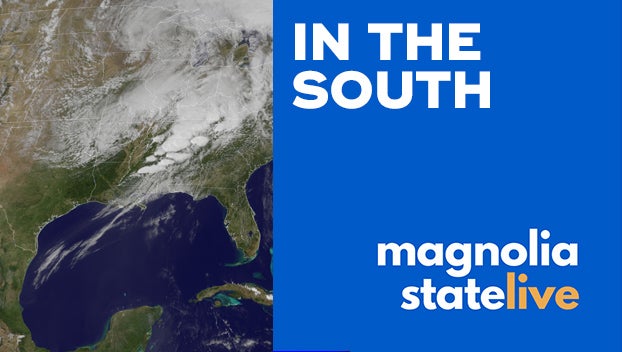Trump visits Louisiana, Texas sites damaged by Hurricane Laura
Published 9:28 pm Saturday, August 29, 2020
President Donald Trump got a firsthand look Saturday at the damage from Hurricane Laura on a post-Republican National Convention trip that allowed him to use the trappings of his office to try to project empathy and leadership.
His stops, first in Louisiana and later in Texas, came two days after the Category 4 storm slammed the Gulf Coast, leaving at least 16 dead and wreaking havoc with severe winds and flooding. While the storm surge has receded and the cleanup effort has begun, hundreds of thousands remain without power or water, and they could for weeks or months as the hot summer stretches on.
“I’m here to support the great people of Louisiana. It’s been a great state for me,” he said in Lake Charles. “It was a tremendously powerful storm.” He said he knows one thing about the state: “They rebuild it fast.”
During the slightly more than two hours he spent in the city, Trump met with officials and relief workers but not with any of the residents whose homes had been ripped apart in the storm.
He did, however, get a good look at the extensive damage and the debris strewn across the city of 80,000 people, beginning with the bird’s eye view from Air Force One as it came in for landing.
His first stop was a warehouse being used as a staging area for the Cajun Navy, a group of Louisiana volunteers who help with search and rescue after hurricanes and floods. “Good job,” Trump told them.
Trump then toured a neighborhood with Gov. John Bel Edwards and acting Homeland Security Secretary Chad Wolf, making his way down a street blocked by felled trees and where houses were battered by the storm, one with its entire roof torn off.
Edwards has said Laura was the most powerful hurricane ever to strike his state, surpassing even Hurricane Katrina, which was a Category 3 when it hit almost exactly 15 years ago.
“Whether you come from Louisiana or 5th Avenue In New York, you know about Katrina,” Trump said.
The president then flew by helicopter to Orange, Texas, which was the worst-hit area in the state. Several hundred supporters greeted his arrival with Trump 2020 flags, banners and signs. Among the officials on hand were Texas Gov. Greg Abbott and U.S. Sen. Ted Cruz, R-Texas. Before a flyover to view damaged areas, Trump and other officials visited the emergency operations center in Orange County to discuss storm damage and the government response. He was flying back to Washington Saturday evening.
Trump has sometimes struggled with his role as consoler in chief, failing to project empathy when visiting places hard hit by tragedy and disaster. That includes in Puerto Rico, where Trump was photographed tossing rolls of paper towel into the crowd, which some saw as inappropriately playful, given the circumstances. During a trip to the Carolinas in 2018, Trump marveled at a yacht floodwaters had washed onto a family’s property, telling them, “At least you got a nice boat out of the deal.” And he was caught on camera telling a person he’d handed out food to “have a good time.”
Other times, Trump has been a source of comfort. After a tornado ripped through Alabama last year, killing nearly two dozen people, Trump spent time with families who’d lost loved ones, listening to their stories and hugging them.
Showing empathy has come more naturally for his Democratic rival, Joe Biden, who issued a statement Saturday saying he and his wife were praying for those hurt by the storm and promising that “we will be there to help you build back better.”
In a possible subtle dig at the incumbent, Biden praised the response of families in the hurricane-hit states and thanked them for “reminding Americans that no disaster, no single person, no injustice can match the humble, personal, courageous ways that Americans choose decency every single day.”
Laura, which packed 150-mph (240-kph) winds and a storm surge as high as 15 feet (4.5 meters), toppled trees and damaged buildings as far north as central Arkansas. More than 580,000 coastal residents evacuated in the midst of the coronavirus pandemic.
More than half of those who died succumbed to carbon monoxide poisoning from the unsafe operation of generators. The hurricane also killed nearly two dozen people in Haiti and the Dominican Republic as it barreled toward the U.S.






